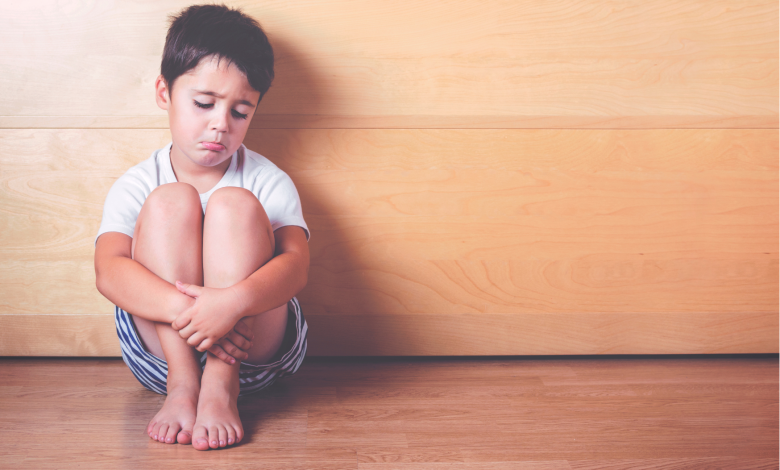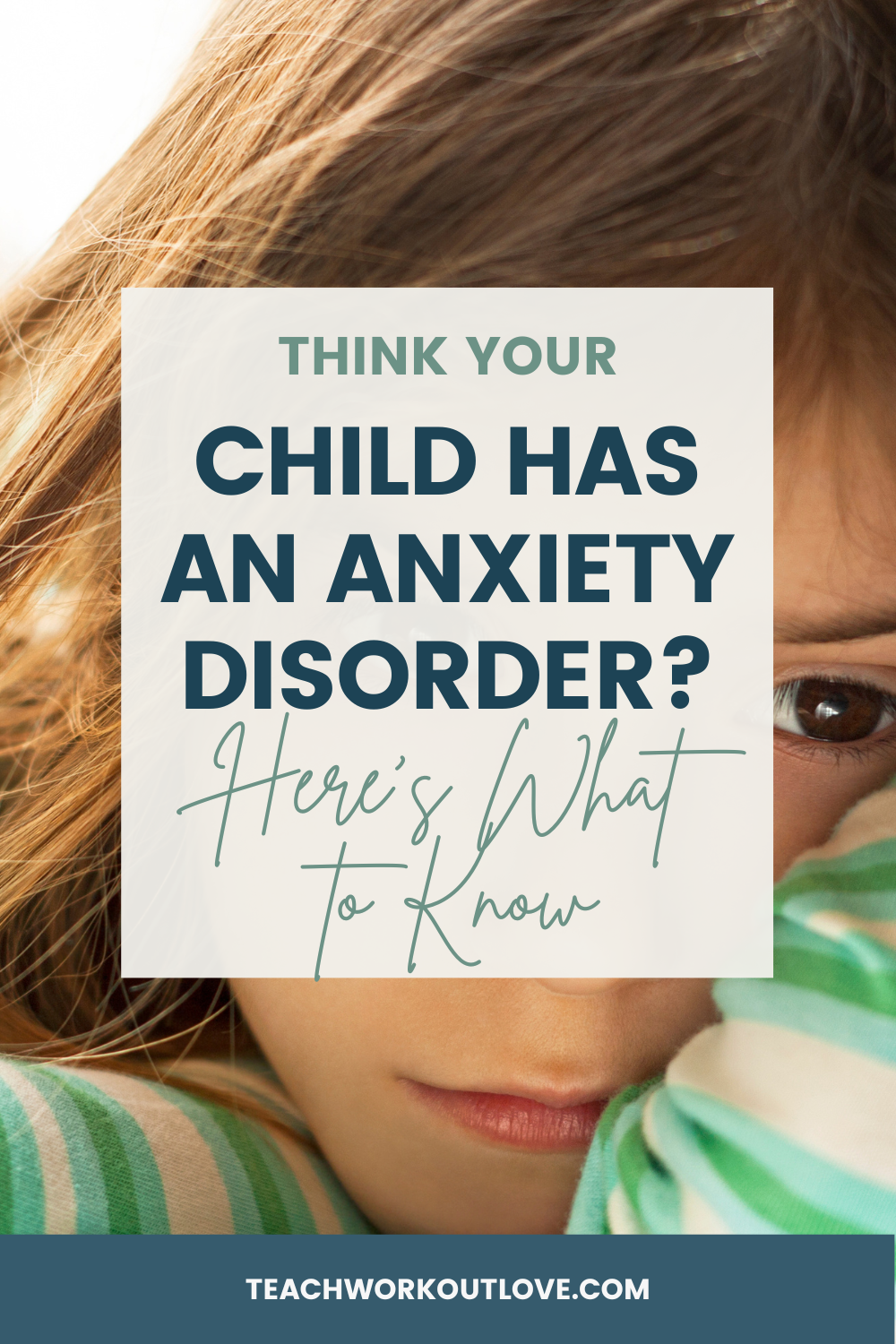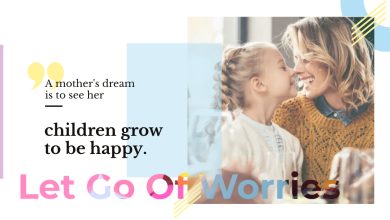
It’s typical for toddlers and young children to fear things. The first few times they are left under the care of someone other than their parents can be frightening because it’s new to them. We still get scared of first experiences as adults, so we can see how this can concern them.
However, when fears don’t subside or lessen as kids age or if they are sad all the time, they could be experiencing some form of anxiety.
Childhood Anxiety Symptoms
About 9.4% of children ages 3-17 are diagnosed with anxiety. If you know what signs to look for in your child, you will be better equipped to help them overcome the obstacles they face every day. Children can exhibit different symptoms as they progress through developmental phases throughout their lives.
One of the symptoms of anxiety is extreme worry about family and friends. This can also relate to school and associated activities. Worrying about the future and what could or might go wrong is another thing to watch for. Low self-image could signal anxiety, but it could be hard to distinguish since it is so common in young kids, especially once they enter a school where judgment runs rampant.
It might be difficult for children with anxiety to relax. They may struggle with sleeping and becoming moody because they don’t understand what is happening. Becoming restless and experiencing appetite changes can also occur. Physical symptoms could also appear in the form of headaches, upset stomach, and muscle aches caused by tension and stress.
Managing Anxiety
Managing childhood anxiety symptoms begins with living a healthy lifestyle. This benefits your child whether they are struggling with anxiety or not, so what do you have to lose?
Encourage at least an hour of physical activity every day. Getting active has been proven to reduce stress and release endorphins that can improve your mood. Look up the recommended hours of sleep your child should be getting every night based on age, and make sure they meet that number to function and flourish.
Create a balanced diet for your child, so they get the proper nutrients and do not fill their bodies with junk that will bog them down. Finally, practice breathing exercises to help calm them down when they get worked up about something. Practice mindfulness and techniques that will teach them how to relax.
Mental Health Apps
Mental health is often neglected. There are solutions for anxiety you can try at home to alleviate symptoms in kids without a proper diagnosis, including various apps. Even if your child isn’t showing any signs of anxiety, mental health issues and challenging behaviors impact daily life. They may not qualify as severe enough to be diagnosed.
The time it takes to receive treatment for mental health issues can seem unreasonable. Life is chaotic enough without having to schedule appointments that may or may not be necessary. Plus, you probably want to avoid outrageous pricing if possible. Of course, you want to do whatever is best for your child, but taking steps to see if you can assist them at home first might be your best bet.
Technology has made it possible to use apps on your phone to help monitor and manage your stress and anxiety. You can use mental health apps to establish new routines for yourself and your child or manage anxiety disorders’ symptoms. These apps offer meditation practices, mood tracking, focus, and evidence-based games to overcome stress and negative thoughts.
Types of Anxiety Disorders
There are several types of anxiety disorders that your child might be suffering from. It is not uncommon for children to have more than one at a time, making their symptoms more severe. Knowing how to identify what’s wrong can help alleviate their symptoms.
Generalized Anxiety Disorder
This anxiety disorder typically applies to children in their adolescence, specifically during school years. These kids exhibit worries that don’t subside and aren’t explicitly focused. Their fear or worries seem unrealistic to others and even excessive at times. Insecurities are common in generalized anxiety disorder, and assurance is needed on a deeper level than other kids require to feel safe.
Panic Disorder
Panic disorder is an extreme fear that causes panic attacks in children when situations become too difficult for them to bear. There may not even be a specific trigger. Symptoms include tingling sensations throughout the body, shortness of breath and a pounding heartbeat. These episodes can be embarrassing for children and can come out of nowhere. Kids with this diagnosis can struggle with daily activities because they fear they will have a panic attack in front of their peers. It can run in families and usually begins during adolescence.
Obsessive-Compulsive Disorder
Thoughts that make your child anxious could cause them to overcompensate by creating routines and rules for themselves. Their daily function can be interrupted by intrusive and unwanted thoughts, called obsessions. Their rituals help them avoid these thoughts by whatever means necessary. Some habits could include cleaning, counting, organizing or repeatedly reading the same thing to calm down.
Selective Mutism
Children under the age of 10 usually experience selective mutism. This disorder makes children choose when they talk to help them overcome anxiety-related fears. They might have a close friend speak for them or just decide not to communicate at all. Sometimes it isn’t a choice. Anxiety in children can become so overwhelming they feel completely frozen and can’t talk.
Phobias
Phobias differ from fears because they aren’t calmed or lessened with the reassurance of safety. Worries are common in children, but they are typically overcome by age and education. When fears become excessive or severe and don’t fade, they are most likely a phobia. Social phobia can also be a culprit of anxiety. Suppose your child suffers from extreme fear of rejection, humiliation or embarrassment to the point that they tend to avoid social situations at all costs. In that case, they may be experiencing an intense fear of interaction.
Separation Anxiety
Separation anxiety is just as it sounds. If your child doesn’t outgrow the fear of being left alone or without your supervision, they might have separation anxiety. While it can be flattering to feel so needed by your child, it can become worrisome if it affects them negatively. Separation anxiety can cause nightmares about separation and extreme worry of parents getting sick or dying.
Get the Right Diagnosis
Reach out to their primary care provider for a proper diagnosis if you’re concerned about your child’s anxiety. Medications aren’t always needed, although they can help with symptom management. Simple lifestyle changes can make a significant difference for children suffering from anxiety. Speaking with a doctor can give you peace of mind that you are doing everything possible to help your child.
This post contains affiliate links and I may receive a commission, at no additional cost to you, should you purchase through one of my links. Please see my disclosure for more information.






